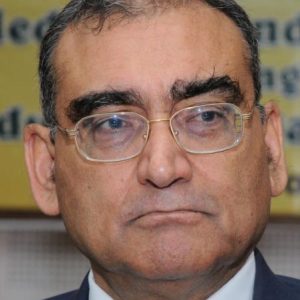
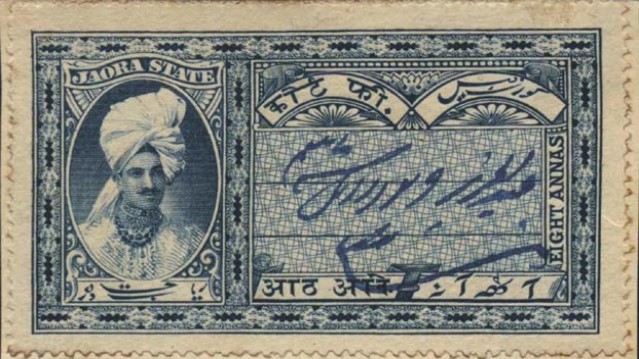
Pt Tribhuwan Nath Katju was my great grandfather (father of my grandfather Dr KN Katju, former Union Home and Law Minister, Governor of West Bengal and Odisha, and CM of MP).
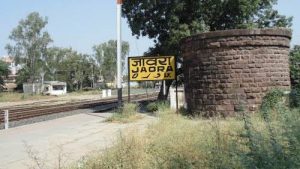
The story of the relation between him and the then Nawab of the Indian princely state of Jaora, Nawab Iftikhar Ali Khan, which I am recounting here, reveals the real state of relations between Hindus and Muslims in India, and belies the false propaganda that Hindus and Muslims were intrinsically hostile to each other.
But before relating this, I may give the background. I am a Kashmiri Pandit. My ancestor Pt Mansa Ram Katju migrated from Kashmir about 200 years ago and took up service under the Nawab of Jaora.
Here I may mention that Kashmiri Pandits are of two kinds, those who speak the Kashmiri language (which is totally different from Hindi/Urdu), and those who don’t.
Those who speak Kashmiri (they would be about 4 lacs today), like my wife, are those whose ancestors remained behind in the Kashmir Valley (until they fled in terror in the 1990s due to the attacks and persecution by Islamic fundamentalists).
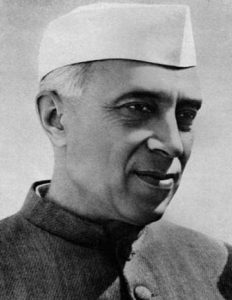
Those who don’t speak Kashmiri, like myself (we know only Hindi/Urdu and English) are about 2 lacs today, and our ancestors had all migrated about 150-200 years ago in exactly the same way, and that was that since we were very proficient in Urdu and Persian, which were the Court languages in the Indian princely states, we got jobs there.
The ancestors of Pt Jawaharlal Nehru, Sir Tej Bahadur Sapru, Dr Katju, etc all migrated that way (and not because of religious persecution).
Before 1947 about two third of India was under direct British rule, and one third under the princely states. Jaora was one of the princely states, ruled by a Muslim Nawab.
As I said, my ancestor Pt Mansa Ram Katju (great grandfather of my grandfather Dr KN Katju) migrated from Kashmir about 200 years ago and took up service in the court of the Nawab of Jaora.

Today Jaora is only a tehsil in Distt Ratlam in western MP (on the border with Rajasthan), but during British rule it was the 4th biggest riyasat in the Central Provinces (as MP was then called), next after Gwalior, Bhopal and Indore.
For several generations my ancestors served under the Nawabs of Jaora. Pt Tribhuwan Nath Katju (my great grandfather) was Diwan under the then Nawab Iftikhar Ali Khan. The two were very fond of each other.
Pt Tribhuwan Nath was about 15-20 years older than the Nawab, and as a child the Nawab had played in his lap. For several decades, Pt Tribhuwan Nath served the Nawab loyally, and the Nawab trusted him in everything.
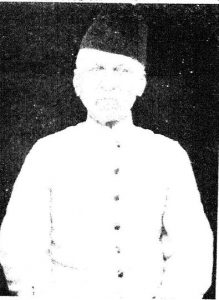
When Pt Tribhuwan Nath was on an evening walk, and the Nawab came near him on horseback (he was fond of horse riding), he would get off his horse to wish Pt Tribhuwan Nath, something he would not do for anyone else.
Pt Tribhuwan Nath died in 1945 (the year before I was born). He had retired around 1920, but the Nawab fixed his pension at the same figure as his last drawn salary, Rs 300 p.m. which was then a huge sum. Even after retirement Pt Tribhuwan Nath went daily to the palace, and if due to illness or otherwise he did not come, a messenger from the Nawab would arrive at his residence to enquire of his welfare.
He would come every summer to Allahabad to spend a few months with his son Dr KN Katju (who had become a top lawyer in Allahabad High Court) and his family. The last time he came to Allahabad was in 1935 or so. At that time he received a letter from the Nawab stating ‘Panditji, aapke baghair mujhe kuch achcha nahi lagta hai’ (Panditji, I don’t feel good without you)
On receiving this letter, Pt Tribhuwan Nath immediately caught the first train and left for Jaora, and on reaching there he went straight to the Nawab and said “Nawab Saheb, aapne yeh baat mujhe pehle kyon nahi batai?”. (Nawab Saheb, why did you not tell me this before ?).
Thereafter for the next ten years he never left Jaora till his death in 1945 (at the age of 81), thinking that if he did, the Nawab would be unhappy.
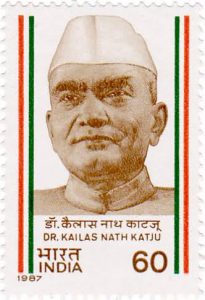 When Pt Tribhuwan Nath died in 1945, the whole of Jaora was in sorrow. The Nawab (who was elder to my grandfather Dr KN Katju) made a public announcement that he was the eldest son of Pt Tribhuwan Nath, so people should first come to him to pay condolence, and only thereafter go to pay condolence to Dr Katju (who had arrived from Allahabad).
When Pt Tribhuwan Nath died in 1945, the whole of Jaora was in sorrow. The Nawab (who was elder to my grandfather Dr KN Katju) made a public announcement that he was the eldest son of Pt Tribhuwan Nath, so people should first come to him to pay condolence, and only thereafter go to pay condolence to Dr Katju (who had arrived from Allahabad).
This story shows how intimate and amicable were relations between Hindus and Muslims, and the propaganda by some vested interests that they were enemies is wholly false. ![]()
Also Read:
Aligarh Is Etched In Our Memory
Jallianwala Bagh Renovation – A Memoricide of Punjab
A Tale of Two CMs – Amarinder vs Arvind
Punjab – How a deadly cocktail of Agri-Water-Energy nexus going to destroy it?
Punjab Cong: Snatching Defeat From The Jaws Of Victory
Death Registers Expose The Gujarat Model Of Counting The Dead
भारत के पास अफगान तालिबान से बातचीत के अलावा दूसरा चारा ही क्या है?
Watch video:

Disclaimer : PunjabTodayTV.com and other platforms of the Punjab Today group strive to include views and opinions from across the entire spectrum, but by no means do we agree with everything we publish. Our efforts and editorial choices consistently underscore our authors’ right to the freedom of speech. However, it should be clear to all readers that individual authors are responsible for the information, ideas or opinions in their articles, and very often, these do not reflect the views of PunjabTodayTV.com or other platforms of the group. Punjab Today does not assume any responsibility or liability for the views of authors whose work appears here.
Punjab Today believes in serious, engaging, narrative journalism at a time when mainstream media houses seem to have given up on long-form writing and news television has blurred or altogether erased the lines between news and slapstick entertainment. We at Punjab Today believe that readers such as yourself appreciate cerebral journalism, and would like you to hold us against the best international industry standards. Brickbats are welcome even more than bouquets, though an occasional pat on the back is always encouraging. Good journalism can be a lifeline in these uncertain times worldwide. You can support us in myriad ways. To begin with, by spreading word about us and forwarding this reportage. Stay engaged.
— Team PT


Copyright © Punjab Today TV : All right Reserve 2016 - 2024 |